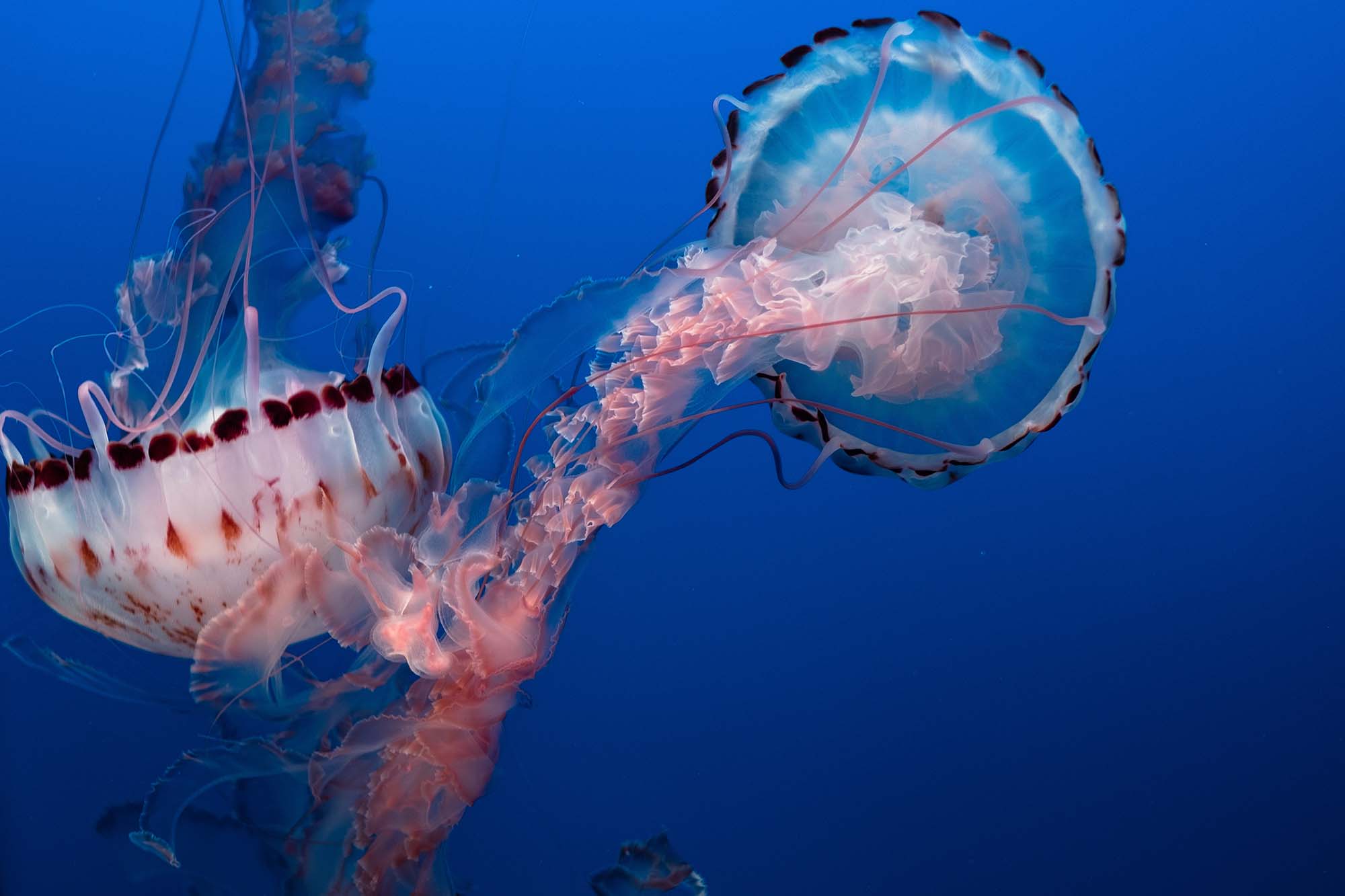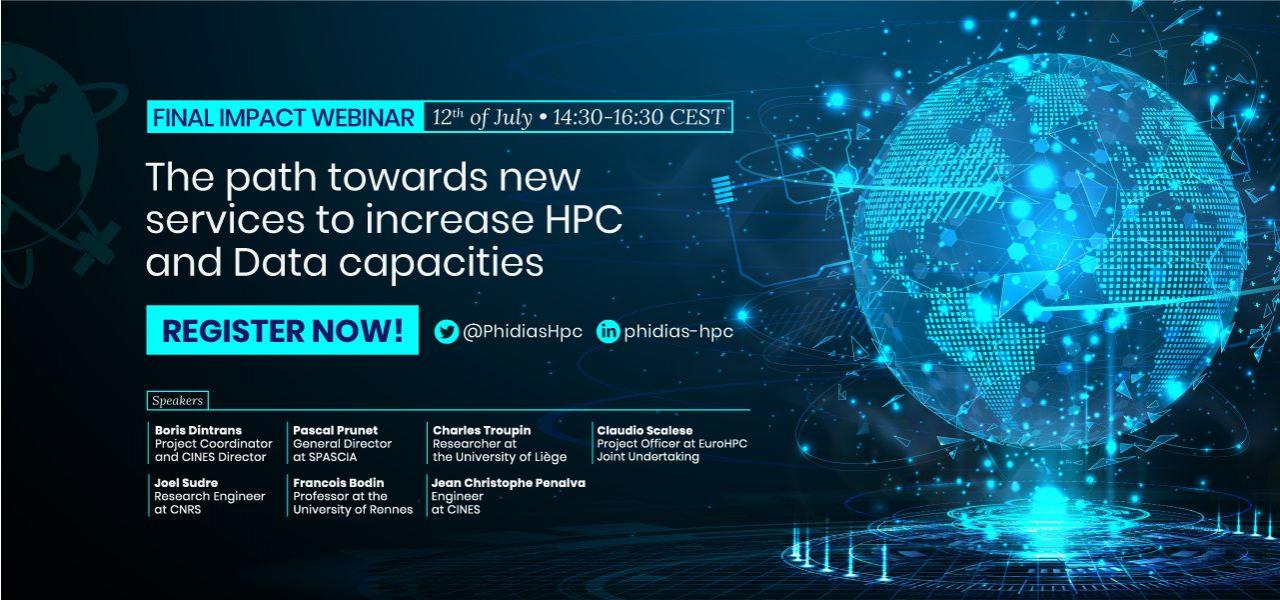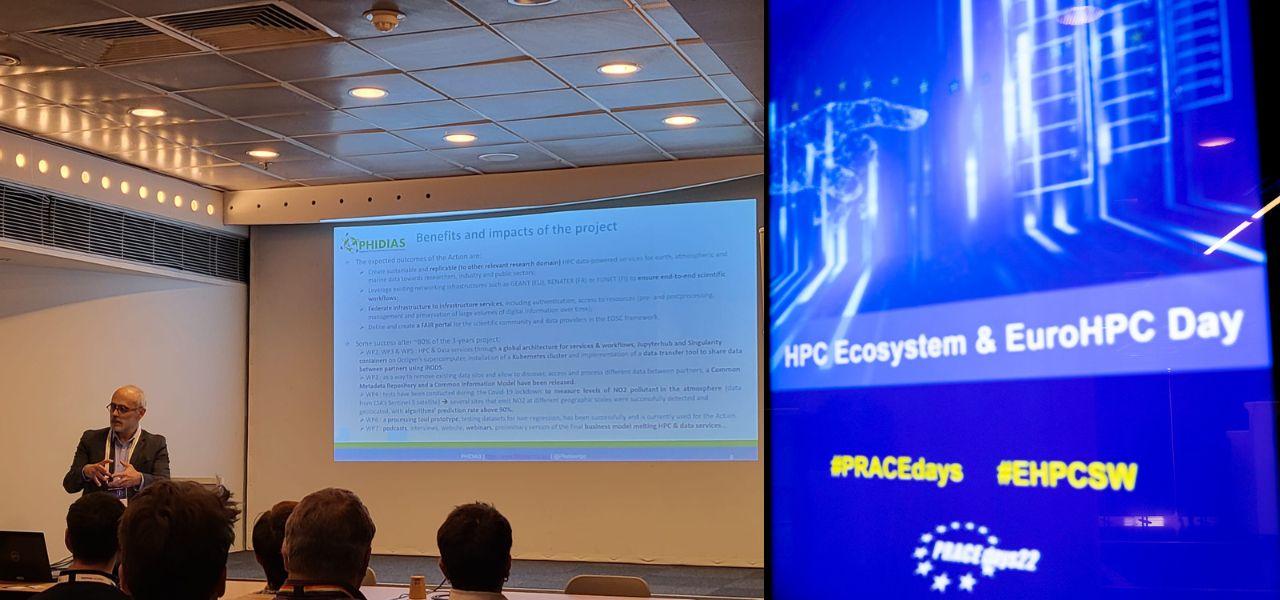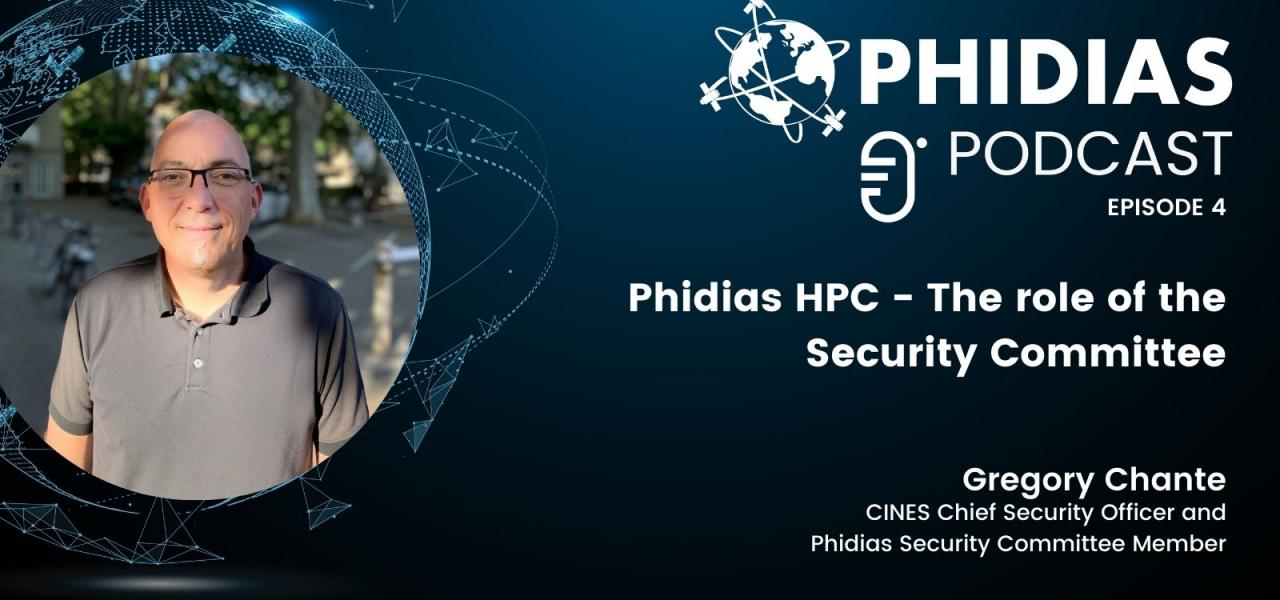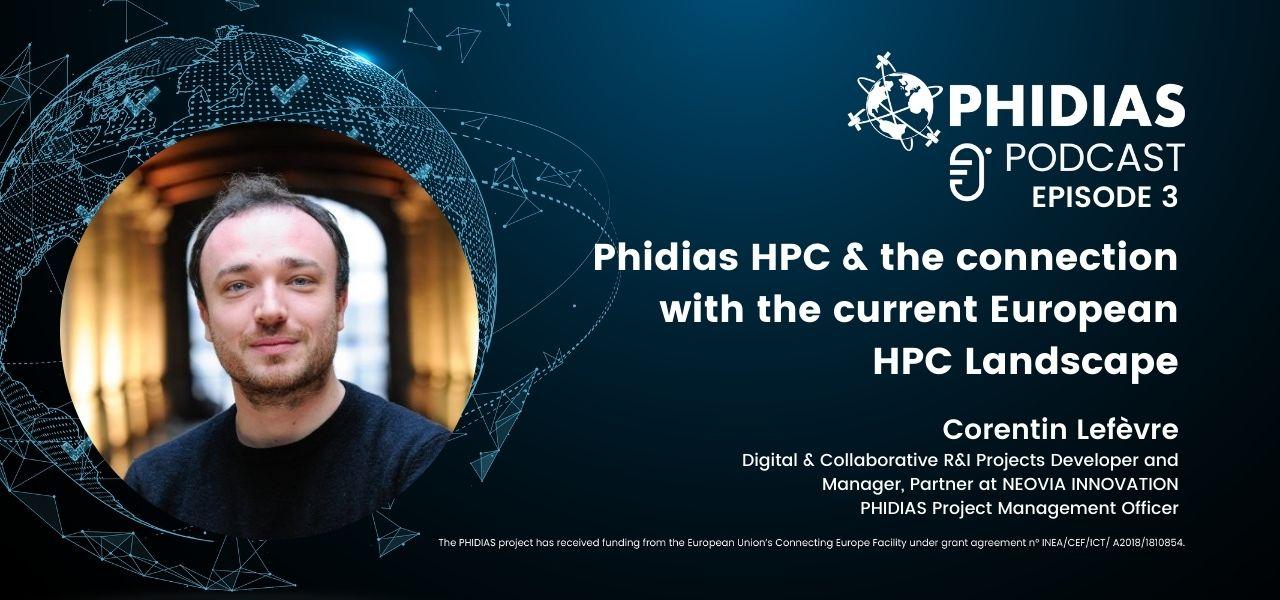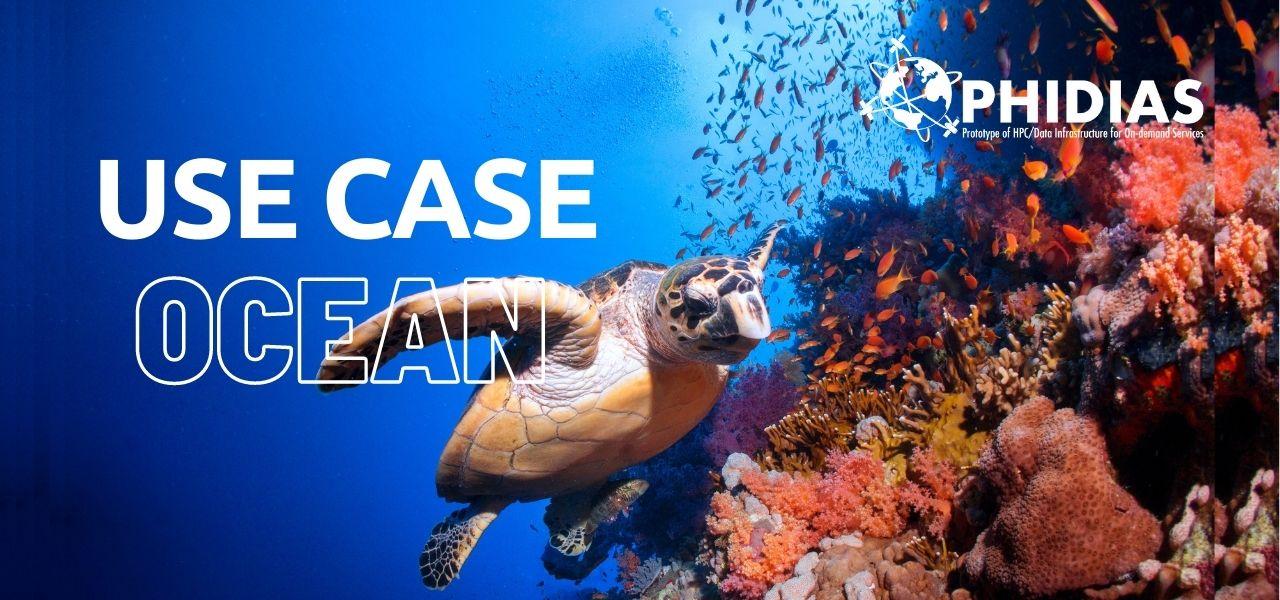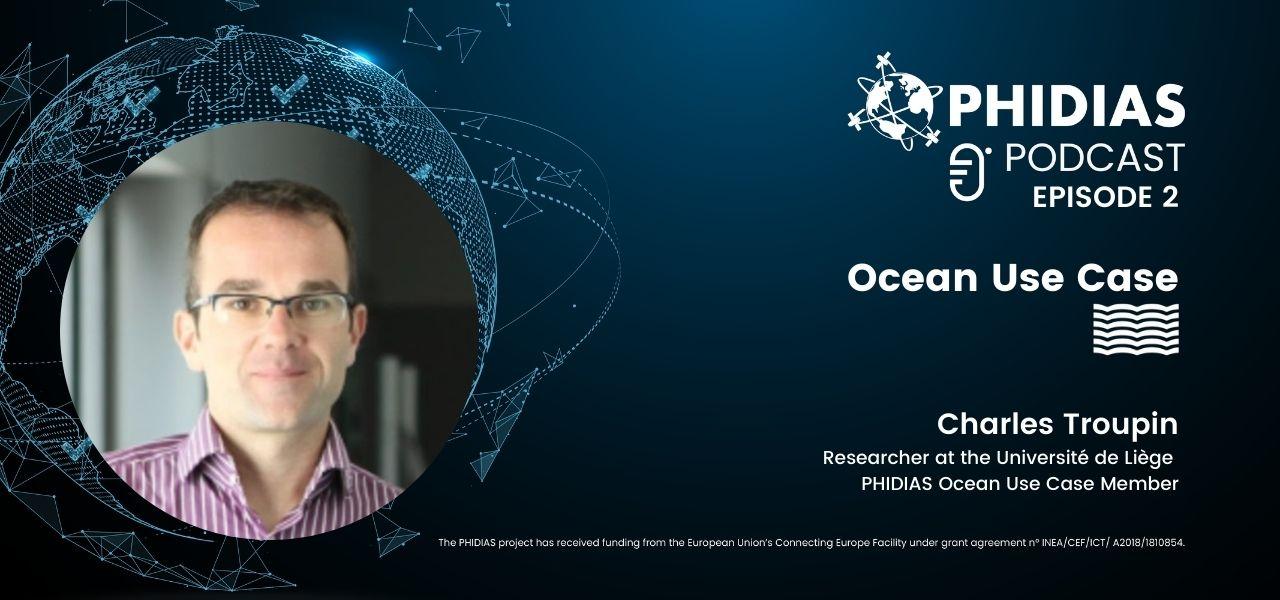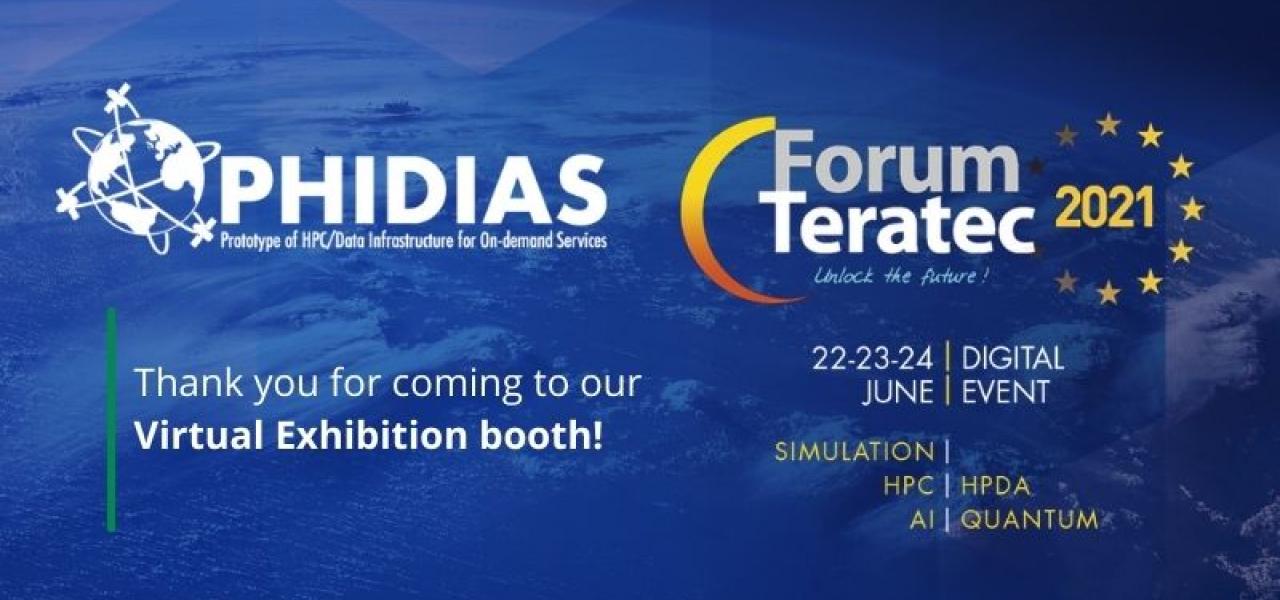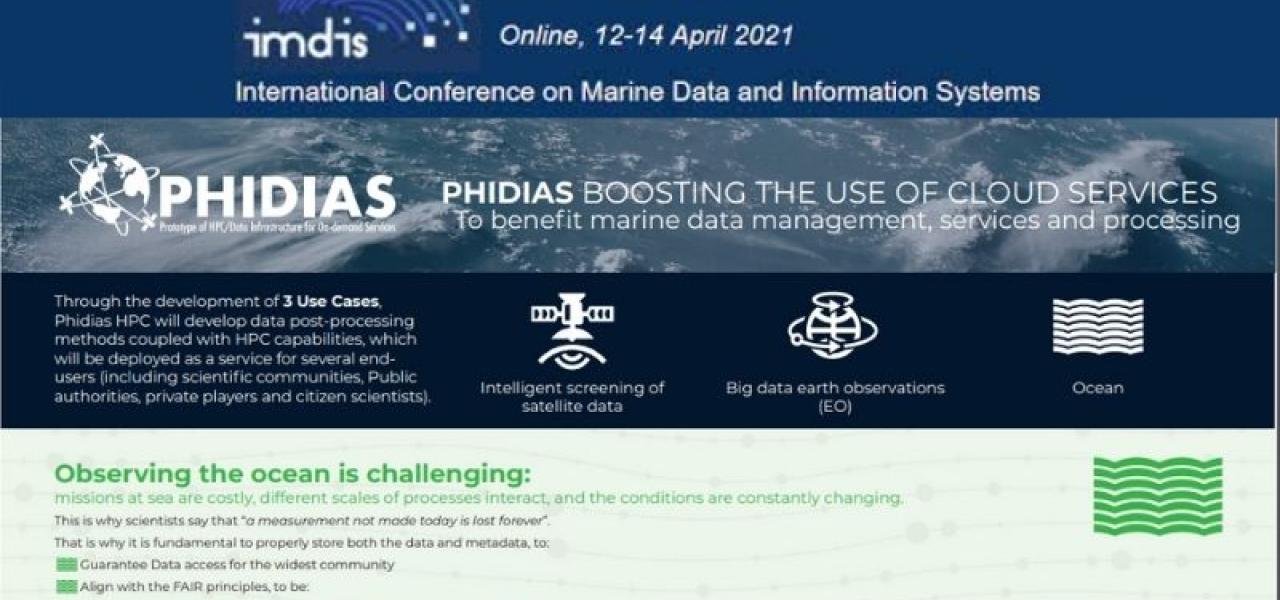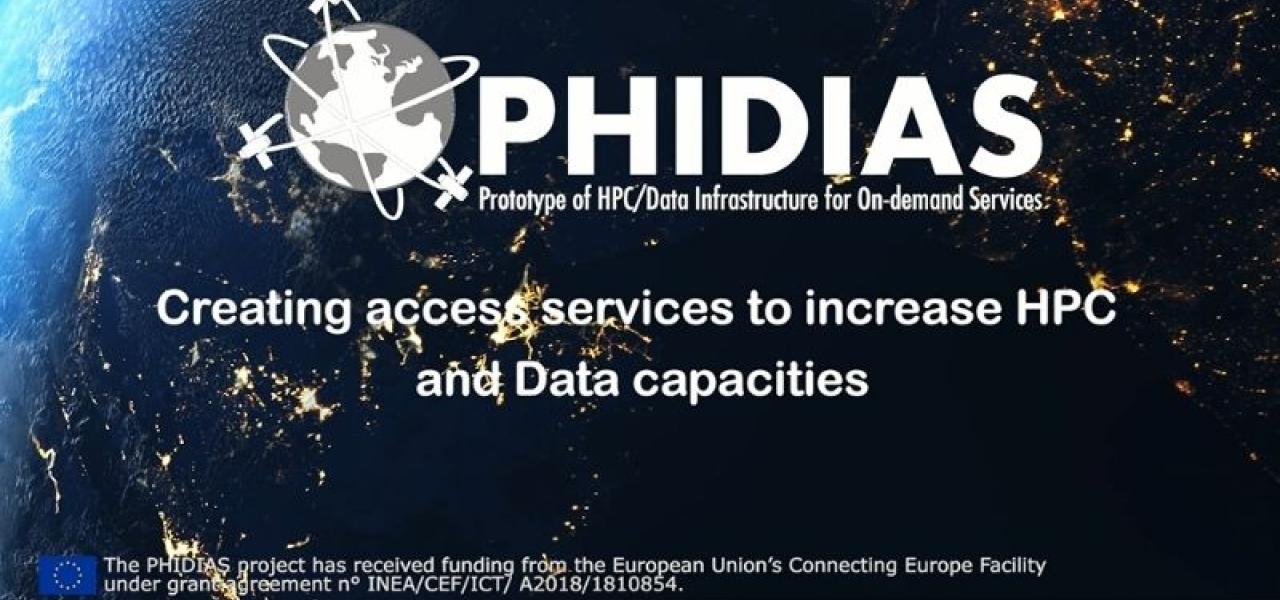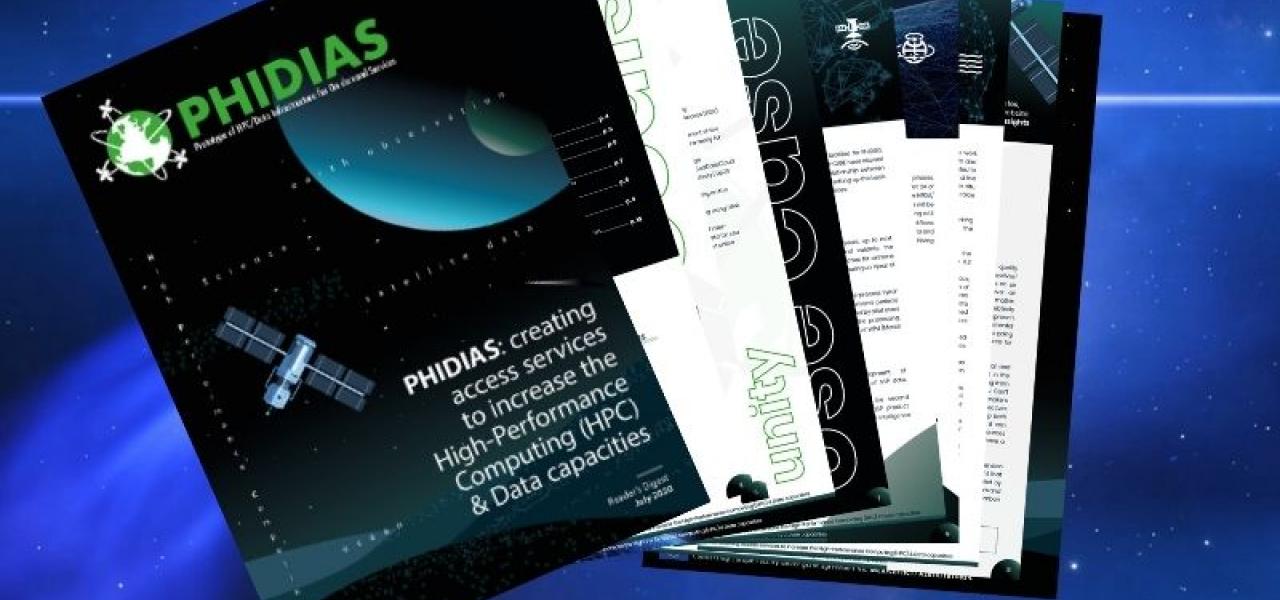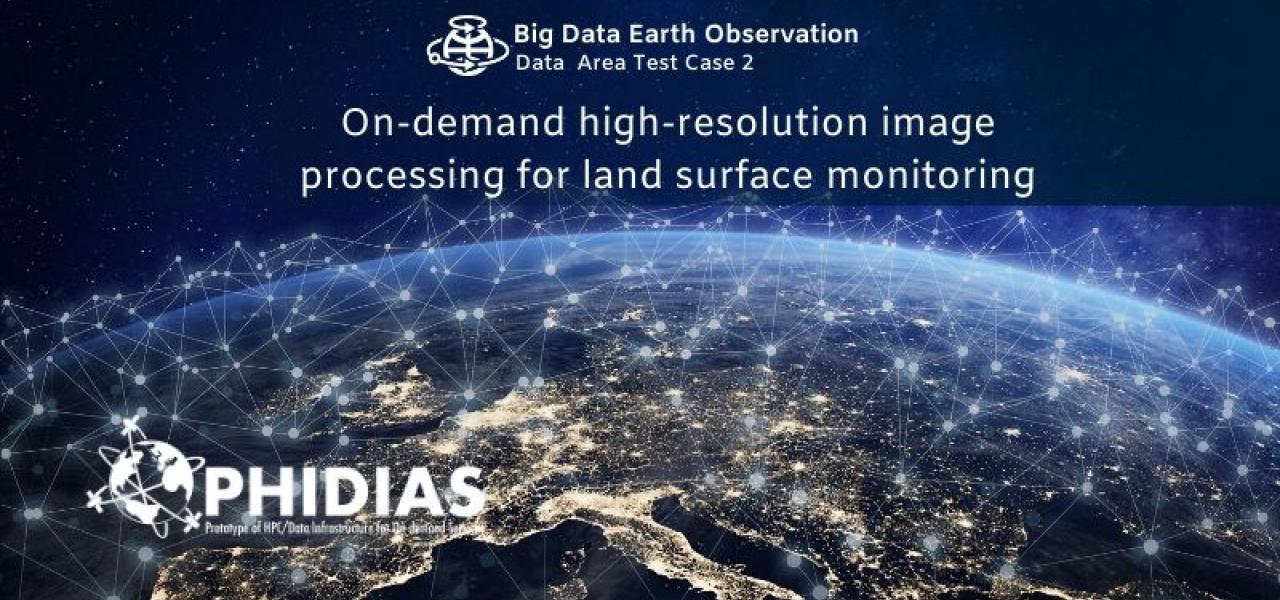The PHIDIAS’s final impact webinar took place last 12 July which aimed at presenting the tangible outputs achieved by the PHIDIAS HPC initiative at the service of the European HPC and Research community, including main features, concrete impact, and prospective advantages for Research & HPC ecosphere. Here are the brief key takeaways from the event:
• A simple web access to a world-class supercomputer, yet with a kind of magic
• From 5% of data analysis to 45% for scientists (data access and computing) on the road to 80%
• Two portals to find and access the available data
• Already available results for Earth Science Systems (detection of extreme events, pollution, nutrients or ocean oxygen measures, etc.)
• Security by design is key in creating such an infrastructure (Security Committee)
• PHIDIAS is also a prototype to evaluate costs
• Metadata is a key point.
PHIDIAS WP3 in cooperation with WP2 has coordinated and facilitated several videoconferences with various scientific WPs but also with the security committee since the 3rd meeting of the PHIDIAS consortium that took place in Villeneuve d'Ascq/Lille on 6 and 7 April 2022.
Boris Dintrans, PHIDIAS project coordinator and CINES director, recently had the occasion to take part in the EuroHPC Summit Week (EHPCSW) 2022 session on “Data-driven Computing” from 22-24 March 2022.
Listen as we dive into the fourth PHIDIAS podcast episode.
In the previous episodes, with François Bodin and Charles Troupin, we had a chance to discuss the overarching structure of the initiative, the current HPC, and the supercomputer landscape throughout Europe.
Finnish Environment Institute – SYKE, one of the PHIDIAS consortiums involved in the Oc
Listen as we dive into the first of the PHIDIAS Use Cases, featuring the interview with Charles Troupin, a researcher at the Université de Liège, who will walk us through the PHIDIAS “Ocean use case” and how the project will help in address the issues related to the ocean research.
Teratec Forum’s sixteenth edition took place virtually on 22-24 June 2021, bringing together top international experts in high performance computing (HPC), simulation and big data, both from research and industry, as well as an excellent showcase for national and Europe
The International Conference on Marine Data and Information Systems (IMDIS 2021) took place on 12-14 April 2021, aimed at providing an overview of the existing i
The PHIDIAS project has published its first Reader's Digest. This issue outlines the key activities and latest developments of the PHIDIAS Use Cases in this initial phase of implementation.
Optimal and radar images observing the Earth's land surface have become an essential source of information to address and analyse environmental issues.


